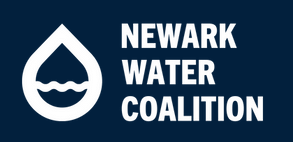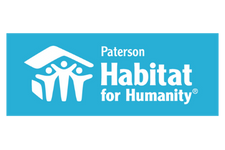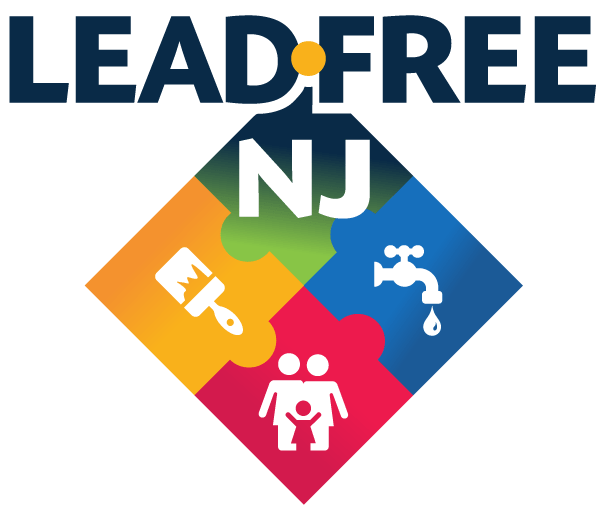Why Community Advocacy Matters
The month of September brings us back to reality after a summer of sun, fun, and vacation. We hope that this month’s blog will turn your attention to community advocacy and the work of some of our wonderful Lead-Free New Jersey hub partners; The East Trenton Collaborative, Newark Water Coalition, and Paterson Habitat for Humanity. Our hub partners use community advocacy to bring awareness to the dangers of lead in the environment to both community residents and legislators. This month, we interviewed Shereyl Snider from East Trenton Collaborative, Anthony Davis from Newark Water Coalition, and Unique Bacote from Paterson Habitat for Humanity for their thoughts on community advocacy and their organizations’ impact.
Community advocacy is a preventative approach that enables people to be active citizens and self-advocates in decisions that affect their lives. When advocates are successful in improving access to resources or addressing social problems, everyone in the community can benefit through a safer living environment. Some common community advocacy activities include organizing community members to inform them of issues and spread awareness, conducting research, writing letters to elected officials, and testifying at public hearings.
 Community advocates are central to Lead-Free New Jersey’s work, and hold significant influence in getting the lead out of our homes, schools, and communities. Shereyl Snider is one of the moving forces behind The East Trenton Collaborative, a Lead-Free New Jersey community advocacy hub. Shereyl focuses on environmental and traffic issues in the East Trenton area, working in collaboration with Urban Promise Trenton which works to enrich and empower the lives of young people in the Trenton community. Her passion to educate her community and bring about environmental justice is infectious. Shereyl’s values for connection with neighbors and the community fuels her desire to educate as many people as possible about the dangers of lead poisoning. The East Trenton Collaborative’s relationship with Lead-Free New Jersey allows them to not only inform residents of lead in their environment, but also provides support for issues that need to be addressed on a larger, city and state-wide level.
Community advocates are central to Lead-Free New Jersey’s work, and hold significant influence in getting the lead out of our homes, schools, and communities. Shereyl Snider is one of the moving forces behind The East Trenton Collaborative, a Lead-Free New Jersey community advocacy hub. Shereyl focuses on environmental and traffic issues in the East Trenton area, working in collaboration with Urban Promise Trenton which works to enrich and empower the lives of young people in the Trenton community. Her passion to educate her community and bring about environmental justice is infectious. Shereyl’s values for connection with neighbors and the community fuels her desire to educate as many people as possible about the dangers of lead poisoning. The East Trenton Collaborative’s relationship with Lead-Free New Jersey allows them to not only inform residents of lead in their environment, but also provides support for issues that need to be addressed on a larger, city and state-wide level.
The information and resources shared on both their website, in-person at community events, and at their office, are not just for children, but for everyone. Many of the community members in this area of Trenton have had generational exposure to lead, which can have significant impacts, as the longer the exposure to lead, the worse the effects. This risk of generational exposure is why Shereyl wants to communicate the importance of family, and that the East Trenton Collaborative is a family dedicated to removing lead from the environment.
Community advocacy is working to improve the conditions of a particular community. This can include working to improve access to resources, working to address social problems, or working to change public policy. Community advocacy can make a difference by bringing about positive changes in a community by encouraging community members to speak out and vocalize their needs.
 One thing Co-founder and Executive Director of the Newark Water Coalition (NWC) Anthony Diaz wants you to know about the NWC is that, “We are more than just water.” Though the name implies water is their main focus, the coalition has and does accomplish so much more to improve the environment for Newark’s community members. Environmental justice is a major urban issue, especially in Newark. Water issues, lead poisoning, food scarcity, and housing insecurity are among the vital issues that NWC works to address on a daily basis. Currently they are conducting a 300-home survey project of community members, having recently achieved the halfway mark at 150 homes surveyed. You can reach out to the NWC on their website to see if you qualify to engage in this important work.
One thing Co-founder and Executive Director of the Newark Water Coalition (NWC) Anthony Diaz wants you to know about the NWC is that, “We are more than just water.” Though the name implies water is their main focus, the coalition has and does accomplish so much more to improve the environment for Newark’s community members. Environmental justice is a major urban issue, especially in Newark. Water issues, lead poisoning, food scarcity, and housing insecurity are among the vital issues that NWC works to address on a daily basis. Currently they are conducting a 300-home survey project of community members, having recently achieved the halfway mark at 150 homes surveyed. You can reach out to the NWC on their website to see if you qualify to engage in this important work.
The Newark Water Coalition is working with the University of California-Berkeley and Rutgers University to collect real data, not just data from statistical projections and algorithms on urban environments and the dangers of lead poisoning. The project received a grant from Google, which is funding the research. This data will enable NWC to focus on the work that really needs to be prioritized, while at the same time showing the breadth of work that has yet to be accomplished. The most important takeaway from NWC’s work, according to Anthony Diaz, is that, “Work like we are accomplishing is possible in every community, if you just focus on the right things.”
Community advocacy can be challenging, but it is worth it. Community advocacy is important because it can improve the quality of life for everyone in a community. However, some challenges faced by community advocates include lack of resources, resistance from community members, and opposition from powerful interests.
 If you want to bridge the gap between the community and resources, community organizer Unique Bacote from Paterson Habitat for Humanity offers a great model for doing so. While many know Habitat for Humanity as builders of affordable housing, in Paterson, they are working to take that a step further. In an urban environment, maintaining existing housing stock is just as valuable as building homes from scratch. Connecting community members with resources is a vital and necessary bridge to accomplish environmental justice. Paterson community members are encouraged to share their concerns about their neighborhood with Unique and her colleagues. Community members can use the website for email inquiries, and Unique is often at in-person and online community events. Paterson’s Unique Bacote is very present in the neighborhood, representing Habitat for Humanity at a wide variety of community events. Unique provides informational materials, answers questions and directs community members to available resources.
If you want to bridge the gap between the community and resources, community organizer Unique Bacote from Paterson Habitat for Humanity offers a great model for doing so. While many know Habitat for Humanity as builders of affordable housing, in Paterson, they are working to take that a step further. In an urban environment, maintaining existing housing stock is just as valuable as building homes from scratch. Connecting community members with resources is a vital and necessary bridge to accomplish environmental justice. Paterson community members are encouraged to share their concerns about their neighborhood with Unique and her colleagues. Community members can use the website for email inquiries, and Unique is often at in-person and online community events. Paterson’s Unique Bacote is very present in the neighborhood, representing Habitat for Humanity at a wide variety of community events. Unique provides informational materials, answers questions and directs community members to available resources.
It is important to Unique to let community members of Paterson know that Paterson Habitat for Humanity is a community resource and sounding board. If you are from Paterson and have concerns, you can reach Unique via email on the website with any issues, concerns, and to get resources to address them.
Community advocacy can make a difference by bringing about positive changes in a community. There are many ways to get involved in community advocacy. One way is to join an existing organization that is working on issues that you care about. Another way is to start your own organization. You can also get involved by working on specific projects or campaigns.
Lead-Free New Jersey’s relationship with our hub partners is important in our efforts to reach New Jerseyans. We hope that you will join us and our partners in continuing our work to “Get the Lead Out” of New Jersey.
DON’T FORGET—Follow us on our social media channels (Twitter, Facebook, LinkedIn, and Instagram), and sign up for our newsletter on our LFNJ website for our next blog announcement. Keep up with the latest information on lead in New Jersey. In our next blog, we will share information about the science behind the use of lead and its effects. There is No Safe Lead Level!
